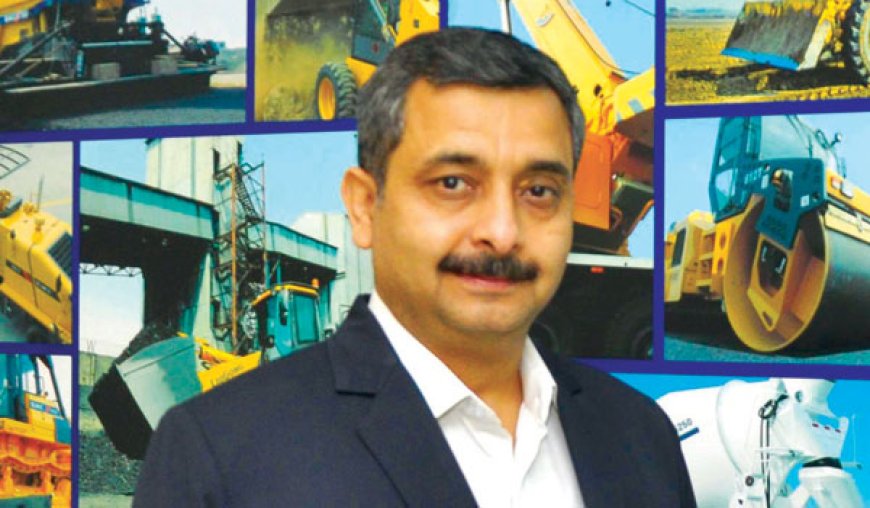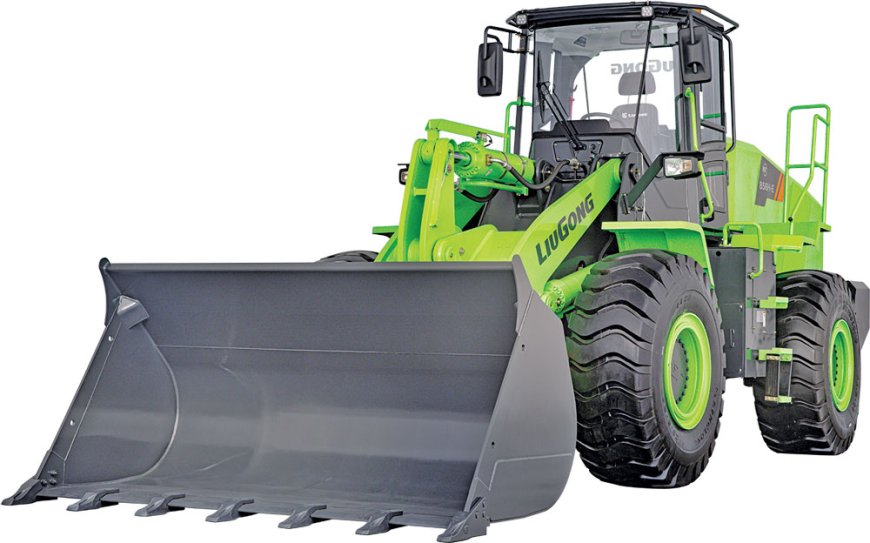LiuGong’s electric wheel loaders are gaining attention for their sustainability and efficiency.

Nischal Mehrotra
Sr. Vice President - Sales & Marketing, LiuGong India
What are your observations regarding the market and current trends in the wheel loader market?
My observations and trends related to the wheel loader market, particularly in India, along with insights on the forecast for the market:
Infrastructure Development: India’s ongoing infrastructure projects, including roads, bridges, airports, and urban development, are significant drivers for the demand for wheel loaders. The government’s push for large-scale infrastructure projects and urbanization contributes to market growth.
Construction and Mining Activities: The wheel loader market in India is strongly influenced by the construction and mining sectors. As these industries continue to grow, the demand for heavy equipment like wheel loaders is expected to increase. Coal mining, for example, plays a pivotal role in the demand for wheel loaders.
Competition and Market Dynamics: The Indian wheel loader market has both domestic and international players, with competition driving innovation. Manufacturers are investing in R&D to create more robust, efficient, and cost-effective machines to meet the demands of the market.
Market Forecast and Growth Prospects: The Indian wheel loader market is expected to grow steadily over the next few years, driven by infrastructure development, construction, and mining. Analysts predict a Compound Annual Growth Rate (CAGR) of around 5-8% over the next few years, reflecting a positive outlook.

What models of wheel loaders does your company manufacture? What are the key specifications of your wheel loaders in terms of load capacity, engine power, and bucket size?
Liugong India’s wheel loader product line ranges from 2T to 9T payload capacity. The engine gross power ranges from 75 HP to 322 HP. The bucket capacity ranges from 1.2 Cu mt to 8 cu mt depending on the application.
How do your wheel loaders stand out compared to competitors in terms of performance and durability?
LiuGong wheel loaders, both diesel and electric, are notable in the heavy machinery industry for several reasons. They are designed to be competitive in terms of performance, durability, and cost-effectiveness. LiuGong’s diesel wheel loaders are equipped with high-performance engines that deliver substantial power and torque, enabling efficient operation even in challenging conditions. Their engines are designed to meet stringent emission standards, providing an eco-friendly option without compromising on power.
LiuGong’s electric wheel loaders are gaining attention for their sustainability and efficiency. They offer a quieter and cleaner operation, making them suitable for urban projects and indoor work environments. The use of electric power reduces fuel costs and emissions, aligning with modern sustainability goals.
LiuGong wheel loaders feature advanced hydraulic systems for smooth operation and precise control. This technology allows for improved responsiveness and versatility in handling different tasks. The design of LiuGong wheel loaders places a strong emphasis on operator comfort. Spacious cabins, adjustable seats, and intuitive controls contribute to reduced operator fatigue, ultimately leading to better performance.
What innovative technologies are integrated into your wheel loaders to enhance efficiency and productivity? How do these technologies contribute to improving fuel efficiency and reducing emissions?
LiuGong India – always believe in innovative technologies to enhance efficiency and productivity while also improving fuel efficiency and reducing emissions. Liugong India uses advanced hydraulic systems with variable displacement pumps and load-sensing technology. This design optimizes the hydraulic flow, ensuring that power is only used when needed. The result is enhanced efficiency and reduced fuel consumption. Telematics systems are integrated into wheel loaders to track performance data, machine health, and operational efficiency. This technology allows operators and fleet managers to monitor fuel consumption, engine load, and usage patterns. By analyzing this data, they can optimize operating practices, reduce idle time, and schedule maintenance more effectively, leading to improved fuel efficiency and reduced emissions.

How extensive is your after-sales support network, including spare parts availability and technical assistance?
Liugong, as a leading manufacturer of heavy machinery, has a reputation for providing extensive after-sales support. They have a wide network of dealerships and service centers, ensuring that customers can access spare parts and technical assistance across various regions. Additionally, Liugong’s global presence allows them to offer technical training, customer support hotlines, and other services that contribute to a reliable after-sales support network.
An extensive and reliable after-sales support network is crucial for any heavy machinery manufacturer, including those producing wheel loaders. This network ensures that customers can maintain, repair, and operate their equipment efficiently over the long term.
How do you gather feedback from customers, and what measures do you take to address any issues or concerns raised?
In the context of wheel loaders, customer feedback is crucial because these machines are used in demanding environments where reliability and performance are essential. Using customer feedback to enhance the design and functionality of wheel loaders. Addressing common failure points or weaknesses identified through customer feedback. Implementing additional safety measures based on customer concerns. Expanding the after-sales support network and training service technicians based on customer feedback.
How do you envision the future of wheel loader technology and its role in construction projects?
The future of wheel loader technology is poised to evolve significantly, driven by technological advancements, sustainability goals, and the changing needs of the construction industry. The push for sustainability and lower emissions is driving the adoption of electric wheel loaders. These machines offer zero-emission operation, reduced noise, and lower maintenance costs, making them attractive for urban construction projects and indoor applications. Hybrid wheel loaders, combining diesel engines with electric components, are also gaining popularity.








